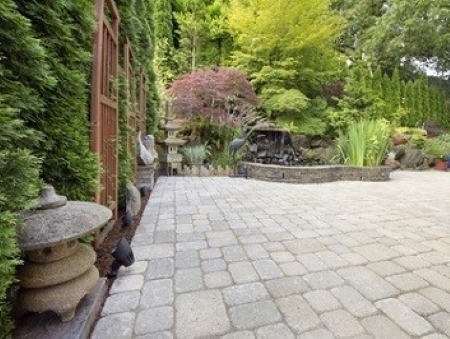Why It Is Important To Clean And Seal Your Pavers

Pavers sometimes function as driveways and, because of this, are constantly under the heavy force of a vehicle. If you don’t seal them, pavers will likely grow grass and accumulate dirt at the joints. This look can be unsightly, and it will be hard to remove once the grass and dirt have been lodged in between the tile spaces. A well-maintained pavement is an asset to help your home have a great look and good investment value. You should know how to get the right pavers for your needs. Paver Sealing has a big impact on helping you properly maintain and keep the beauty of your home.
Here are just some important reasons why you should maintain your pavers by cleaning and sealing them:
Unsealed Pavers Mean More Frequent Cleaning
If you don’t seal your pavers, it can be a big hassle. Pavers will require more frequent cleaning and will collect more dirt and grime easily. Not only that, but unsealed pavers also get stains and blotches more easily, and, in some cases, these will be hard or impossible to remove.
Sealed Pavers Contribute to Proper Drainage
An unsealed paver is a porous material that will eventually collect and trap water. When you apply a sealant, the pavers harden, including the joint and gaps. There is also a protective water-resistant surface that forms after a sealant, allowing water to flow through and empty to the drainage.
Professionals at Simmons Quality Building help maintain your pavers in proper shape and help them drain properly.
Sealing Protects Pavers from Foreign Objects
Foreign objects may fall on your pavers, such as oil, liquids, and leaves. A sealant creates an invisible layer on top of the paver that can help protect it. Water and other things you may drop on the paver will be repelled, protecting your pavers from getting damaged and worn out. Simmons Quality Building will use their cleaning skills to clean out the foreign objects before sealing your paver.
Plants May Grow Along the Joints of Unsealed Pavers
If your paver does not have proper drainage, there are chances that water will accumulate and cause vegetation to grow along with the gaps of your pavers. It is important to have proper drainage in your paver area and have a sealant in between the joints where sand sometimes collects. The sealant hardens the sand, making weeds and vegetation impossible to grow.
Help Prevent Water Damage
Your pavers are exposed to shifts of weather from sunny to rainy. The materials of your pavers are under a lot of stress, especially when there is continuous rainfall. Water accumulated on the pavers and unsealed pavers will cause the water to enter the tiny holes on the stone, eroding it over time. A sealant helps prevent water from entering the microscopic holes in your pavers.
Enhances Color and Life Span
Unsealed pavers may look dull and have a chalky texture. On the other hand, sealed pavers have a glossier look and a brighter color. Having vivid color enhances the aesthetic look of your driveway and adds appeal to the overall exterior of your home. Sealing also protects the pavers, thus increasing their lifespan.
Sealants Will Strengthen the Pavement
Your pavers are under a lot of stress because heavy vehicles usually move over them, and so do people. Applying a sealant can strengthen the material of your pavers because it hardens the stone further. This will cause the effect of strengthening your entire pavement.
Pavers Reduce Loosening and Cracks
Sealants harden the surface of the paver and strengthen it. Sealants also have a gluey and sticky consistency, which can keep your pavers from having cracks. Having a sealant will also prevent pavers from loosening because the sealant hardens the material, keeping it in place.
Pavers Repel Dust
Pavers that have sealants will prevent dust from accumulating on them. Porous materials that are unsealed collect water and collect dust because the small holes and cracks on the pavers attract the dust and keep it there. Sealed pavers have a glossy finish, which helps seal and cover the very small holes on the pavers, thus repelling dust.